[Top 25] D&D: Best Spells

In Dungeons and Dragons, there are a bunch of amazing spells for you to pick and choose from. It can get a little overwhelming. The spells you decide to learn can affect more than just your damage output in battle, but also the actual content of your character. Not every Wizard is meant to throw fireballs around the battlefield.
I encourage you to pick the best spells for your character. But if you’re still having a tough time making up your mind, here are a few great spells I recommend you take a look at.
25. Eldritch Blast
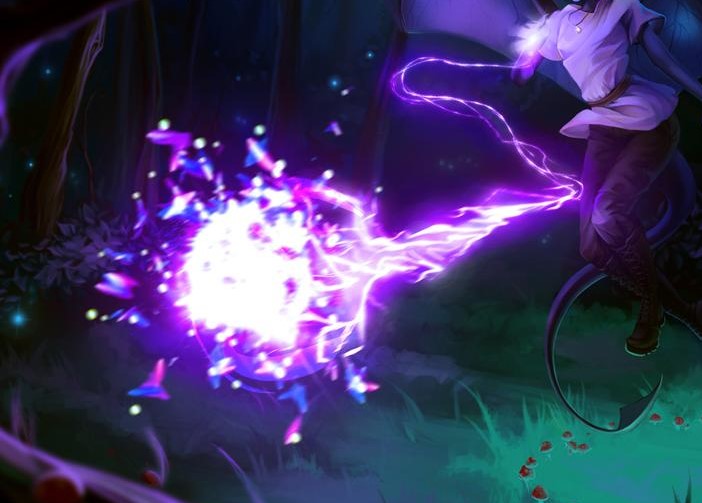
You too can shoot ray beams from your fingers!
Eldritch Blast is almost necessary if you’re playing a Warlock. Since Warlocks don’t have many spell slots available, Eldritch Blast kind of becomes the default action on your turn in battle.
It may be a bit cliche for a Warlock to come into play blasting away with this cantrip, but it’s so popular for a reason. If you want a challenge, you can learn plenty of other damage dealing cantrips, but if you want a Warlock that can hang with the “cool kids,” then give the blast a chance.
Why Eldritch Blast Is Great:
- At higher levels it can hit multiple targets.
- Warlocks can learn invocations that enhance their Eldritch Blast.
- It’s a cantrip, so it can be cast over and over again.
Eldritch Blast details:
- Only available on the Warlock Spell List.
- You make a spell attack, dealing 1d10 force damage on a hit.
- At higher levels, you make additional attacks, which you can direct at the same target or at different targets.
24: Hold Person
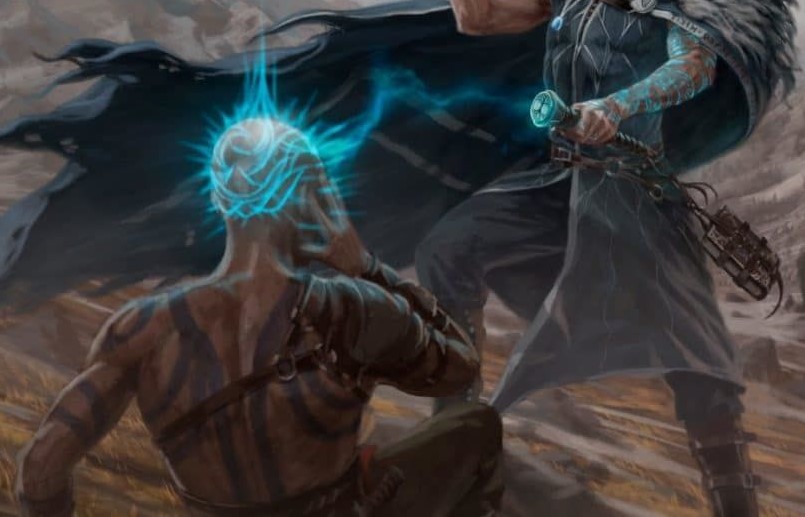
Is he paralyzed with fear or by magic? Why not both?
Hold Person is the perfect spell for when you’re fighting a big scary guy and need some breathing room. Or when you’re fighting a less scary guy, but you’re not sure if you want to kill him yet. When a person is under the effect of this spell, they are held in place, paralyzed. However, they can make another save at the end of every turn, so your party has to hurry to take advantage.
While under the effect of Hold Person, melee attacks are criticals, they can’t resist any attempts to restrain them, and they automatically fail any Dexterity saves. This is the perfect spell if you find yourself often confronted by humanoid baddies.
Why Hold Person Is Great:
- Paralyzing an opponent for even one turn is usually long enough to deal some good damage, or restrain them.
- A held person can’t run away, and even if they succeed on their save, they’ve wasted a turn.
- At higher levels it can be cast on multiple targets at once.
Hold Person details:
- Available to Wizards, Warlocks, Sorcerers, Druids, Clerics, and Bards.
- A 2nd level spell.
- A humanoid within 60 feet must make a Wisdom save or be paralyzed for a minute. The target can make additional saving throws at the end of each of its turns.
23: Enlarge/Reduce

Tower over your foes and crush them like the insect they'll look like compared to you.
Have you ever wondered what it would be like to be a little bit taller? Or maybe you wish you had made your race gnome instead of elf. Either way, this is the spell for you.
You can choose between making a target one one size larger, or one size smaller. You can strengthen your allies, or if you’re feeling crazy, you can even shrink your enemies.
Why Enlarge/Reduce Is Great:
- It’s great for bolstering an ally or debilitating an enemy.
- Both statuses can be useful/harmful for different situations.
- Great for when you want to make the main damage dealer hit harder.
Enlarge/Reduce details:
- Available to Wizards and Sorcerers.
- A 2nd level spell.
- You half or double a creature’s size. If they’re unwilling, they can make a constitution saving throw. Enlarged creatures have advantage on strength checks and saving throws and deal an extra d4 of damage. Meanwhile reduced creatures have disadvantage and deal one d4 less damage.
22: Knock

If only getting through every locked door was as simple as knocking. Oh wait, it is if you have this spell.
Have you ever found yourself faced with a locked door that you want to get through? Did your party gather and none of your players wanted to be a rogue? Well, this is the spell for you.
Knock is perfect for any doors, chests, or boxes that you’re not allowed in. It even works on magical locks. Unfortunately, if there are just a dozen locks on something it’s gonna take about a dozen uses. Still, you’ll get there eventually.
Why Knock Is Great:
- Knock can’t even be stopped by the arcane spell for locking things up.
- Even if a door is just barred or stuck, it still opens for you.
- When cast, it lets out a loud knocking sound which can be heard from as far away as 300 feet. So you better get in and out quick if you’re trying to be stealthy.
Knock details:
- Available to Bards, Wizards, and Sorcerers.
- A 2nd level spell.
- Choose an object within 60 feet with a lock, or an object that is stuck shut. The object is magically unlocked, unstuck, or unbarred for you. Even disables the spell Arcane Lock for 10 minutes.
21: Magic Mouth

There's nothing quite like having a conversation with a wall where the wall talks back.
This amazing little spell right here allows you to implant a message within an object of your choice. It could be a wall, a pot, or anything not being worn or carried. Once your message has been imbued in the object, then you get to decide the condition that activates it.
It can be as specific as you like. If it’s a message for a particular person or persons, you could have it speak for only them. But if you’re feeling particularly fun you can just make a statue speak to any passerby that walks up to them.
Why Magic Mouth Is Great:
- The message can only be 25 words at most. But those 25 words can be spoken over 10 minutes.
- Great for pranks or secret messages.
- Lasts forever. Until someone comes to dispel it. Leave your mark all over the world!
Magic Mouth details:
- Available to Bards and Wizards.
- A 2nd level spell.
- Implant a message in an object within 60 feet. Set the condition for that message to be spoken aloud by the statue. When the condition occurs a mouth appears on the object and speaks your message in your own voice and volume.
20: Hunter’s Mark

This ranger would never forget to cast Hunter's Mark as soon as battle starts. We should all strive to do the same.
Don’t ever forget to use Hunter’s Mark. If you’re playing a Ranger, this is one of your most important spells. Not only does it deal extra damage to your target when you hit it with any attack, it also makes it easier to find the target if they get away from you.
And if you kill your target before the spell is gone, you can use a bonus action to choose a new target to deal that extra damage to. It’s easy to forget and get straight to attacking, but you’ll be glad you managed to remember this spell if your quarry gets away.
Why Hunter’s Mark Is Great:
- It’s only a bonus action to cast or move, so you can still attack the same turn you cast.
- You have advantage on tracking your targeted creature in case it flies back to its nest/base when you’re just about to kill it.
- It only has verbal components, so you don’t need to pull out an arcane focus or make any funny hand gestures.
Hunter’s Mark details:
- Available to Rangers only.
- A 1st level spell.
- One creature you can see within 90 feet is marked as your quarry until the spell ends. You deal an extra 1d6 of damage to it, and you have advantage on perception and survival checks to find it. When you cast this spell at higher levels you can extend the length of the spell to up to 24 hours.
19: Sending
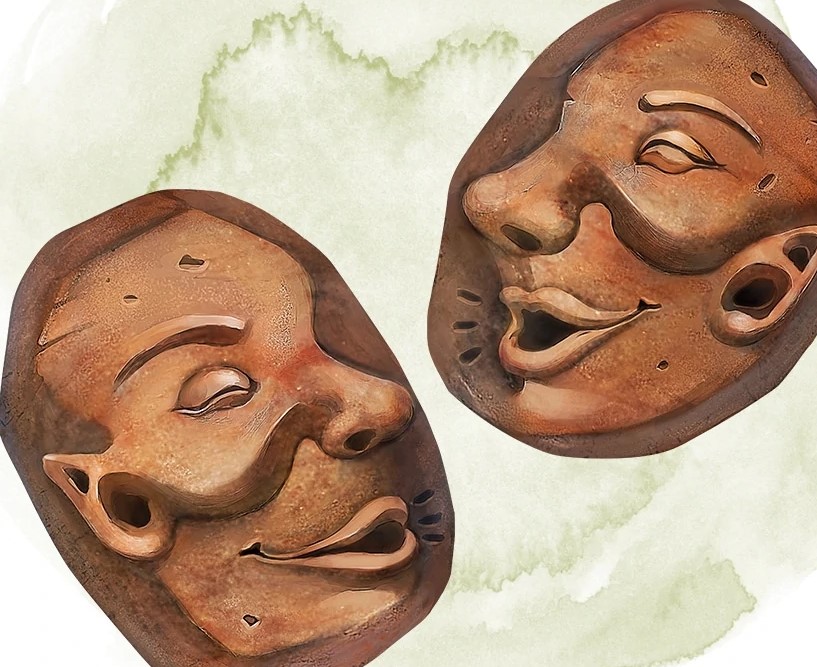
These stones can barely replicate a fraction of the sheer power that this spell posesses.
For those times you’d love to have a high fantasy, long distance plan. Sending is a beautiful spell that allows you to telepathically communicate to basically anyone you’ve ever met before. There are a few limitations, but it’s better than sending a carrier pigeon.
Why Sending Is Great:
- Keep in touch with penpals.
- Ask for advice or help with current problems from smarter people when you’re stuck.
- When you have information that could stop a war, save a life, cure a plague, you can send it immediately instead of traveling all the way back the long way.
Sending details:
- Available to Bards, Clerics, and Wizards.
- A 3rd level spell.
- You send a 25 words or less message to a creature you are familiar with. They know it’s from you if they know you, and can respond in a like manner immediately. You can send the message across any distance, and even across planes of existence. However, if the target is on a different plane than you, there’s a 5 percent chance that your message doesn’t arrive.
18: Fly

Soar through the air like a magestic bird... or a gnomish wizard with chaos in his eyes. Your choice.
Flying has to be the number one superpower that most of us wanted as children. Well, that or invisibility. But invisibility can’t do anything that a really sneaky rogue couldn’t do. But there are just some places you can’t reach without being able to fly.
Travel across great distances, twice as fast as normal. Fly over precarious obstacles, like Lava, the ocean, an army of goblins. Or just use it instead of an elevator to get to the top of a tower. Flying will get you where you want with ease. As long as you don’t lose concentration.
Why Fly Is Great:
- It grants you a fly speed of 60 feet, which is twice as fast as most player races.
- You’re able to cast it on any willing creature, not just yourself.
- Finally hit those pesky flying enemies with melee attacks like you’ve always wanted to.
Fly details:
- Available to Sorcerers, Warlocks, and Wizards.
- A 3rd level spell.
- Touch a willing creature and they gain a flying speed of 60 feet for the length of the spell. When the spell ends, if they’re still flying, they begin to fall. Casting it at higher levels allows you to cast it on more targets.
17: Banishment
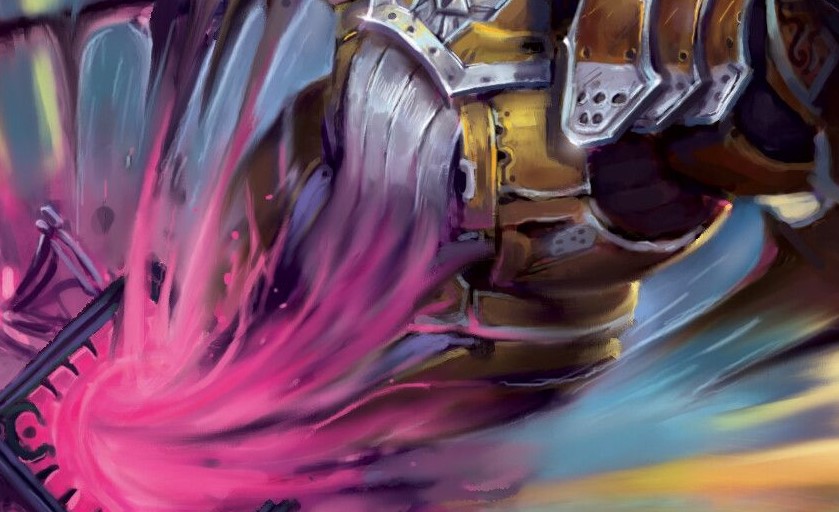
Some beings just don't belong in this plane. You know who you are.
Are you fighting demons, devils, or abyssal creatures from the void? Is the boss just too strong for you to take on while also dealing with all their minions? Give Banishment a try and send them away for at least a little bit.
Banishment is a great spell for fighting foes from another realm, because it has the power to send them back to their home plane permanently. Even if they are native to your plane, or the plane you’re fighting in, the target will still be sent away to a harmless demiplane and be stuck there for a minute. Plenty of time for you to prepare for them to come back.
Why Banishment Is Great:
- It’s a great spell to use on a tough enemy to give you and your party some time to breathe and recover.
- Could potentially end the battle right then and there if your big bad guy is native to a different plane than the one you’re on.
- At higher levels you can target multiple creatures with the same spell.
Banishment details:
- Available to Clerics, Paladins, Sorcerers, Warlocks, and Wizards.
- A 4th level spell.
- One target within 60 feet makes a Charisma saving throw or is banished to its native plane, or if it’s on its native plane then it’s sent to a harmless demiplane for the duration. If the target is sent to its home plane and the spell lasts the full minute, the target doesn’t return.
16: Feather Fall

We can't all be cats landing on our feet. Some of us instead fall like feathers.
This is the spell you really want to have in your back pocket if you’re ever planning on dealing with heights. Climbing a mountain, flying through the air, adventuring into the Underdark with all those surprise holes.
Fall damage is an evil thing, and Feather Fall means neither you nor your party will ever have to worry about it again.
Why Feather Fall Is Great:
- You can cast it as a reaction, which is very nice since falling happens surprisingly fast.
- You can cast it on a group of five at once. That’s usually enough for a party. Though if you’ve got a large one, you might have to pick your favorites.
- Depending on how far you’re falling, you could be falling for a while. Long enough to have a badass Feather Fall combat sequence.
Feather Fall details:
- Available to Bards, Sorcerers, and Wizards.
- A 1st level spell.
- The rate of descent of five falling creatures within 60 feet slows to 60 feet per round until the spell ends. The creature takes no fall damage if it lands before the spell wears off. But then the spell immediately ends.
15: Goodberry

Would you just eat a berry a day for all the nutrition you needed if you could?
Everyone needs to eat. It’s something that a lot of tables don’t think about. But if your party doesn’t eat, bad stuff is supposed to happen to them. The thing is that a lot of players want to spend time doing things other than shop or hunt for meals.
Goodberry takes care of all the meal finding and preparing in one handy dandy spell.
Why Goodberry Is Great:
- You’ll never have to worry about collecting food for yourself or your party again.
- You could recover up to 10 hit points if you eat all the berries yourself, or share the healing among the party.
- While every spell slot might seem really important at lower levels, at higher levels a single 1st level slot will seem like nothing to you.
Goodberry details:
- Available to Druids and Rangers.
- A 1st level spell.
- You create up to ten berries that are infused with magic for the next 24 hours. Eating a berry provides enough nourishment to sustain a creature for a day and restores 1 hit point.
14: Leomund’s Tiny Hut

Camp comfortably in your very own magical dome!
Welcome to your D&D starter home. Leonmund’s Tiny Hut is that studio apartment you move into when you first move away from home. Only magical.
This spell creates a 10 foot radius dome that prevents all creatures from entering unless they have your express permission. It’s your own little haven that you have complete control of.
Why Leomund’s Tiny Hut Is Great:
- You can allow which nine creatures can enter and who must wait outside in the unprotected world.
- The temperature is always comfortable inside the dome, and you can change the interior lighting and appearance of your magical home.
- No spell can pass through the tiny hut, so you and the party can feel safe for the length of the spell.
Leomund’s Tiny Hut details:
- Available to Bards and Wizards.
- A 3rd level spell.
- A 10 foot radius dome of forces appears around you for 8 hours. Nine medium or smaller creatures can pass through the dome freely. Spells and other magical effects can’t extend through the dome or be cast through it. You control the interior lighting of the dome and the color of the outside of the dome.
13: Zone of Truth

It's hard enough telling the lies from the truths in real life. This spell at least simplifies things at the table.
For the party without any decent insight, we have the spell that points out truth and lies for them. Zone of Truth is basically the kind of spell that cops and investigators would use on a group of criminals to get to the truth of the matter. While the Zone is great, it isn't exactly perfect.
No one can speak a deliberate lie if they fail their check, but they can be evasive with their answers. A party that wants to keep their secrets can try and change the subject, be vague, or just not talk at all. The only limitation is that they stay within the boundaries of the truth.
Why Zone of Truth Is Great:
- The party can use it to get information from NPCs they don’t trust.
- NPCs can use it to get information from the party that they’d rather not reveal.
- It’s great for making those inner party secrets come to light.
Zone of Truth details:
- Available to Bards, Clerics, and Paladins.
- A 2nd level spell.
- You create a magical zone that guards against deception in a 15 foot radius sphere for the next 10 minutes. A creature that enters the spell’s area for the first time or starts its turn there must make a Charisma saving throw. On a fail they can’t speak a deliberate lie while in the zone. The caster knows if someone has failed or succeeded at their save.
12: Seeming

You can make an entire group look however you want. Even like out of place characters from under the sea.
Seeming is an amazing spell for jokesters and serious wizarding folk as well. You can use it to change your party into imperial guards, or to make everyone in the area unwillingly take the appearance of clowns.
There are a number of reasons you’d want to disguise a large group of people at once and seeming is the spell to do it. The only limit is that you can’t change the target’s body type. But if you wanted to make your party look like bipedal cows, there’s nothing stopping you.
Why Seeming Is Great:
- Change the appearance of as many people as can fit in a 30 foot radius.
- You can make each person look unique. They don’t all have to be the same starfish.
- Get as crazy as you want. If you want someone to look like a person-shaped pile of eyeballs, that’s something this spell could do.
Seeming details:
- Available to Bards, Sorcerers, and Wizards.
- A 5th level spell.
- This spell allows you to change the appearance of any number of creatures within 30 feet of you. The changes created by this spell fail to hold up to physical inspection. A creature can use its action to inspect a target and make an Investigation check against your spell save DC. It becomes aware of the disguise if it succeeds.
11: Revivify
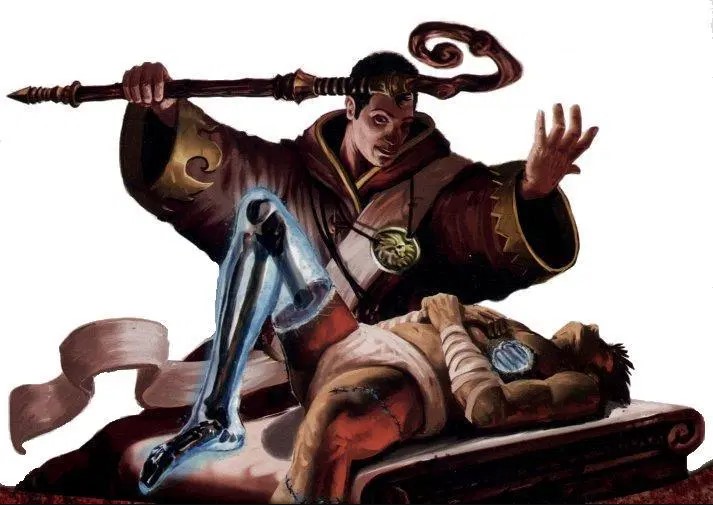
Unfortunately, Revivify is going to bring that guy back with a serious case of phantom limb.
Having a character die in D&D is never fun. Sometimes it’s necessary, but other times you’ve got a cleric in your party with a valuable enough diamond to bring you back to this mortal coil.
Revivify allows you to bring a creature back to life that has died in the last minute. It costs a diamond worth 300 gold, but can you really put a price on the life of a party member. Yes, you can. It’s at least 300 gold.
Why Revivify Is Great:
- It only costs an action so it could be used right as someone falls in battle.
- You can add your own rules for life saving rituals, like adding a roll to see if it works. Increase that tension.
- Near death experiences can really change a character, so whoever is brought back might have some new thoughts on life.
Revivify details:
- Available to Clerics and Paladins.
- A 3rd level spell.
- You touch a creature that has died in the last minute. That creature returns to life with 1 hit point. This spell can’t restore life to a creature that has died of old age, and it can’t restore any missing body parts.
10: Command
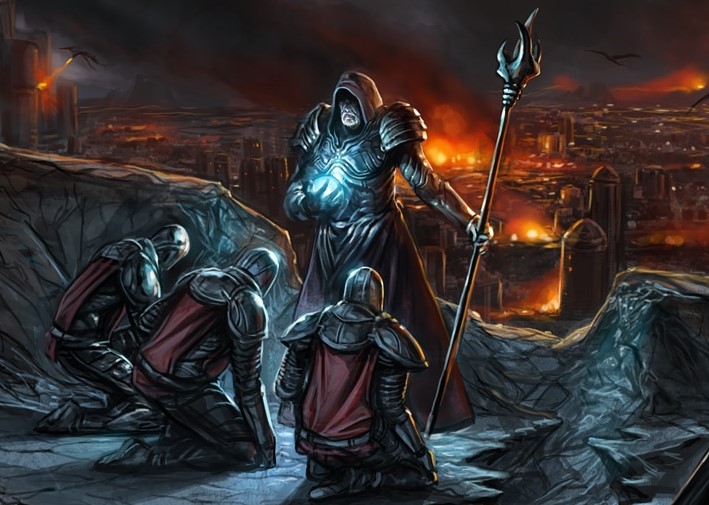
"No, I was asking for Neal. Has anyone seen Neal? He's the one I'm trying to Command!"
For those that like to take more control in battle, this is the spell for you. Command is a very strong spell with lots of creative potential. You force your will on the target, using a single command word to make them follow your orders.
You could just follow the book’s suggestion and make them Approach, Drop, Flee, or Grovel. However, if you’re feeling up to it, you can come up with your own single word commands and what they would make the target do. Dance, Disrobe, Hug.
Working with the GM to find out what the limits of Command are in your game is part of the fun.
Why Command Is Great:
- Turn any single spoken word into an order. Make your enemies flee, halt, or dance.
- With higher spell slots you can affect more than one target at a time.
- Weaker willed enemies will become your pawns to do with as you see fit, but nothing is sweeter than getting lucky with the rolls and making the big bad boss kneel before you.
Command details:
- Available to Clerics and Paladins.
- A 1st level spell.
- Speak a one word command to a creature you can see within 60 feet. If they fail a Wisdom save they must follow your command on their next turn. The spell has no effect if the target is undead, if it doesn’t understand your language, or if the command is directly harmful to it.
9: Inflict Wounds
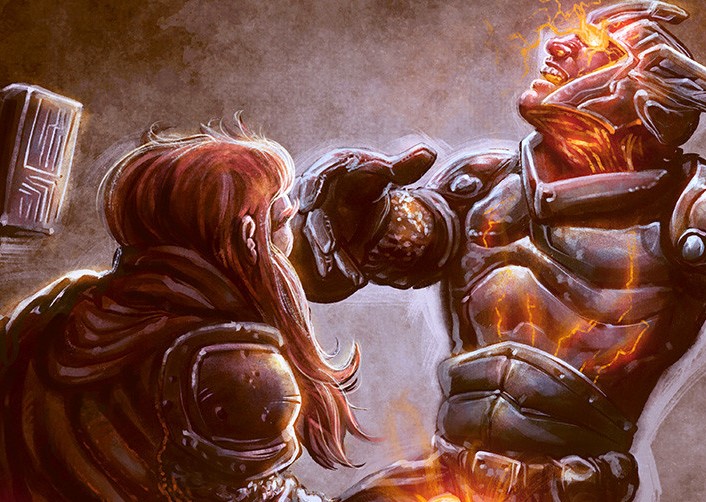
If that guy survives, he's never going to underestimate a Cleric again.
Inflict wounds is simply the best spell to deal if you want to lay some serious hurt on a foe, but you don’t want to spend those high level spell slots. The downside is that it’s only available to Clerics, but there are ways to get around that with feats and creativity.
Why Inflict Wounds Is Great:
- It’s just about the heaviest hitting spell you’ll find at 1st level.
- It deals more damage if you use a higher spell slot.
- It’s only verbal and somatic, so you don’t need to use any materials or use a focus to cast it.
Inflict Wounds details:
- Available to Clerics only.
- A 1st level spell.
- Make a melee spell attack against a creature you can reach. On a hit, the target takes 3d10 necrotic damage.
8: Healing Word
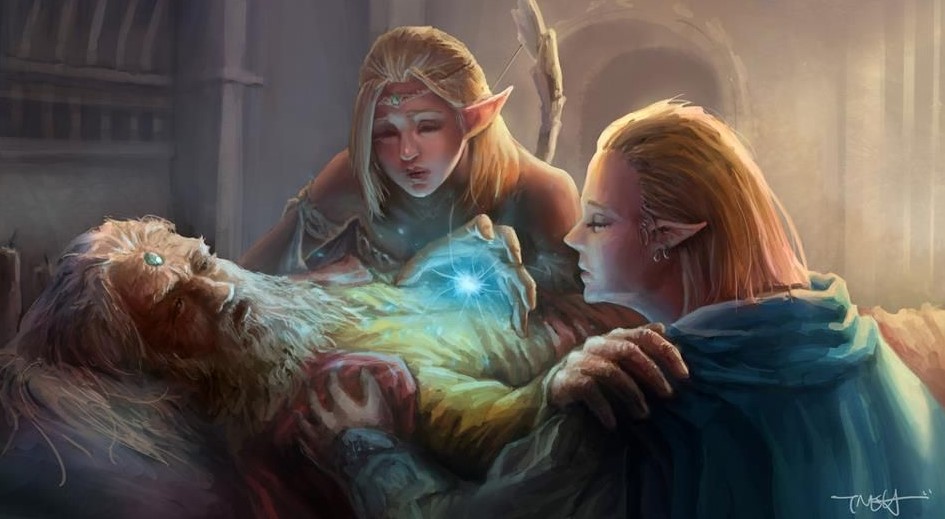
Sometimes all it takes is a word to revitalize a person. It helps if that word is magical and part of this spell.
Another very simple, yet amazing spell. Healing Word may not heal for much, but in a life or death fight with the big bad, you might need just enough juice to bring your fallen comrades back into the battle. And being able to stay away from the danger and heal people from a distance makes this spell amazing.
Why Healing Word Is Great:
- Keep away from the things hurting people and still provide the healing.
- Only vocal components so you don’t have to worry about what you’re doing with your hands.
- It’s only a bonus action to cast so you could still do something else with the rest of your turn.
Healing Word details:
- Available to Bards, Clerics, and Druids.
- A 1st level spell.
- A creature of your choice that you can see within 60 feet regains hit points equal to 1d4 + your spellcasting ability modifier. The spell has no effect on undead or constructs.
7: Counterspell
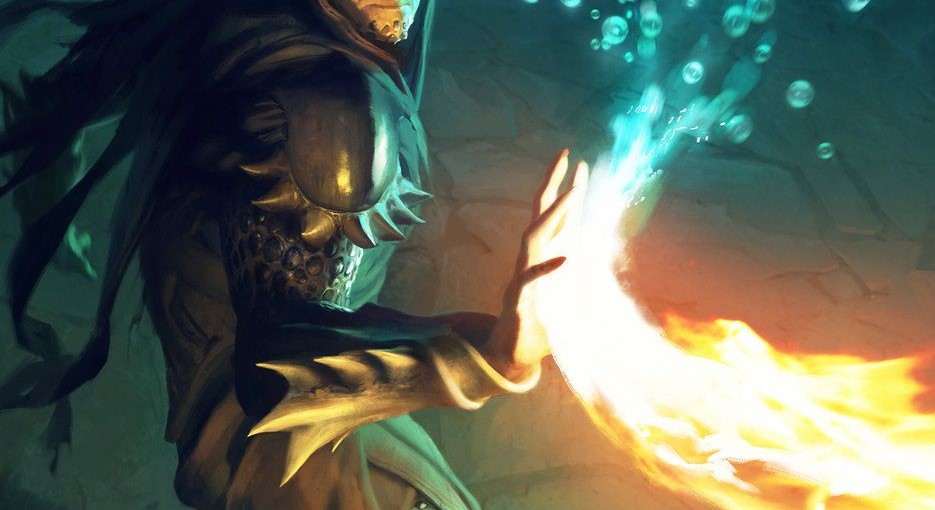
A spell is a horrible thing to waste. So use your spell wisely to waste someone elses spell.
Magic isn’t only a tool for the party to use. This is the spell you want if you’re facing off against a magic slinging big bad, or if the big bad doesn’t want the party to use their most powerful spells.
Counterspell can interrupt and waste a target’s spell causing it to fizzle out and have no effect. And no one likes wasting spells, but everyone loves counterspelling.
Why Counterspell Is Great:
- Automatically works on any spell of 3rd level or lower.
- It’s a reaction, so you don’t have to worry about what you do on your turn. As long as you have a spell slot left.
- Has a range of 60 feet, so you can cancel spells from pretty far away.
Counterspell details:
- Available to Sorcerers, Warlocks, and Wizards.
- A 3rd level spell.
- You spend your reaction to attempt to interrupt a creature casting a spell within 60 feet. If the spell is an equal or lesser level spell than the slot you use to cast Counterspell, the spell fails. If it’s a higher level spell, make an ability check using your spellcasting ability. The DC equals 10 + the spell’s level. On a success, the creature’s spell fails and has no effect.
6: Chaos Bolt
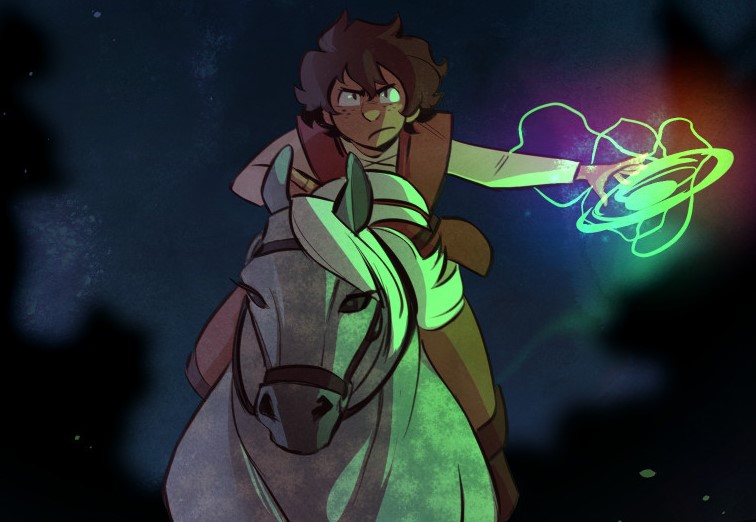
Red for fire? Blue for cold? Yellow for lightning? What color do you think that spell is going to end up being? It's anyone's guess.
Chaos Bolt is the perfect spell for gamblers who are constantly up against multiple baddies. The odd thing about Chaos Bolt is that the kind of damage it deals is determined by the number on the dice. And if both of the dice are the same number, the attack ricochets off the target, attacking a different creature of your choice.
And you repeat this process, potentially bouncing off your enemies again and again, until you run out of people to hit. All you have to do is keep rolling doubles, and you can hurt everyone.
Why Chaos Bolt Is Great:
- It has a bounty of different kinds of damage it can deal, so it’s good for finding out potential weaknesses and resistances.
- Aim for only hitting one target, but keep your fingers crossed that you get some extra hits in.
- As a sorcerer spell, Chaos Bolt has a lot more versatility when combined with Sorcery Points. Just imagine a Twinned Chaos Bolt bouncing all over the place.
Chaos Bolt details:
- Available to Sorcerers only.
- A 1st level spell.
- You hurl an undulating mass of chaotic energy at one creature within 120 feet. If your ranged spell attack hits, the target takes 2d8 + 1d6 damage. Choose one of the d8s, and the number rolled on that die determines the attack’s damage type. If you roll the same number on both d8s, the chaotic energy leaps to a new creature of your choice within 30 feet, making a new attack, potentially bouncing the damage again. A creature can only be targeted once by a casting of this spell.
5: Polymorph

In case you were wondering a T-Rex is CR 9. Now you know what to go hunt after you reach 9th level.
For the times when you want to be the big scary beast wreaking havoc on the battlefield. Or if you want to take a big scary beast and turn it into a harmless cutie.
Polymorph allows you to change the form of one creature within range, willing or unwilling. You can turn an ally into a terrifying dinosaur, or a monster into a cute lil bunny. The transformation lasts for up to an hour, and the target gains all the statistics of their new form. There’s so much room for creative use, it’s insane.
Why Polymorph Is Great:
- Turn the big bad evil guy into a poodle. Dig a giant hole. Throw the poodle in the hole. Bury the poodle.
- Collect new beast forms as you fight new animals on your adventures. There has to be a living T-Rex someone in your D&D world.
- When your new form runs out of steam, you’ll come back unscratched. It’s like an extra set of hit points.
Polymorph details:
- Available to Bards, Druids, Sorcerers, Warlocks, and Wizards
- A 4th level spell.
- Transform a creature within 60 feet that you can see into the form of any beast whose challenge rating is equal to or less than the target’s. An unwilling creature must make a wisdom save. The target’s game stats are replaced with the stats of the chosen beast, but it retains its alignment and personality. The creature is limited in the actions it can perform by the nature of its new form, and all of its gear melds into the new form, becoming unavailable to it.
4: Clone

Yes, you too can have a secret stockpile of extra lives hidden somewhere.
The secret weapon of any big bad evil force. This spell is probably the reason that many antagonists have a tendency to pop back up after the party kills them. And if you get to a high enough level, the power can be yours.
Clone has a high cost, and it takes a healthy chunk of time, but it grants you the confidence of knowing that even if you were to die on your adventure, you wouldn’t be down for long.
Why Clone Is Great:
- Lead the way into a trap filled dungeon, carelessly ignore threats to your life, dare the big bad monster to take the shot. You’ve got a back up life with this spell.
- Clone your enemies. Get a good chunk of their DNA and then if they’re ever to die, they’ll be at your mercy.
- Theoretically have your character live forever. Dying at a ripe old age and then coming back in a new youthful body. Over and over again.
Clone details:
- Available to Wizards only.
- An 8th level spell.
- This spell creates an inert duplicate of a living creature in an expensive sealed vessel large enough to hold a medium sized creature. It takes 120 days for the clone to grow to full size and maturity. It remains inert and endures indefinitely as long as its vessel remains undisturbed. At any time after the clone matures, if the original creature dies, its free soul transfers to the clone.
3: Animate Dead
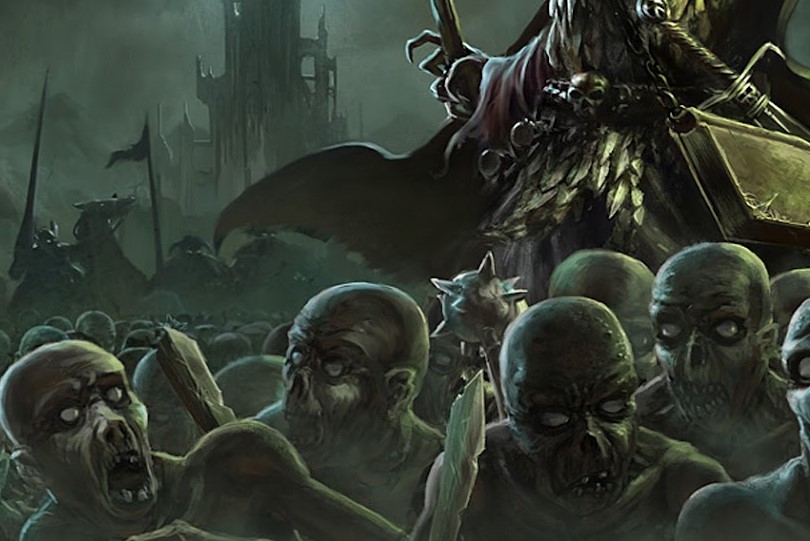
Just promise me you'll treat your Army of the Dead better than this. Those look like horrible working conditions. These poor guys need a union.
An Undead army might seem like an evil thing to aspire to… And it is. But that doesn’t mean it isn’t awesome. And an undead army in the right hands can be put to a good purpose.
Why Animate Dead Is Great:
- Theoretically, there’s no real set limit to the amount of undead servants you can have control over with this spell. As long as you have enough spell slots to command them.
- Bring back your enemies (or even your friends) as your loyal servants.
- If you don’t maintain control on them, they don’t stop being zombies or skeletons. They make nice sleeper agents if you get the chance to leave them in enemy strongholds.
Animate Dead details:
- Available to Clerics and Wizards.
- A 3rd level spell.
- This spell creates an undead servant from a corpse or a pile of bones. On each of your turns you can use a bonus action to command any and all creatures you’ve created with this spell. The Zombie or Skeleton is under your control for 24 hours. To maintain control you have to cast this spell on the creature again before the 24 hour period is up. This use of the spell can reassert your control of up to four undead that you’ve animated.
2: Feeblemind
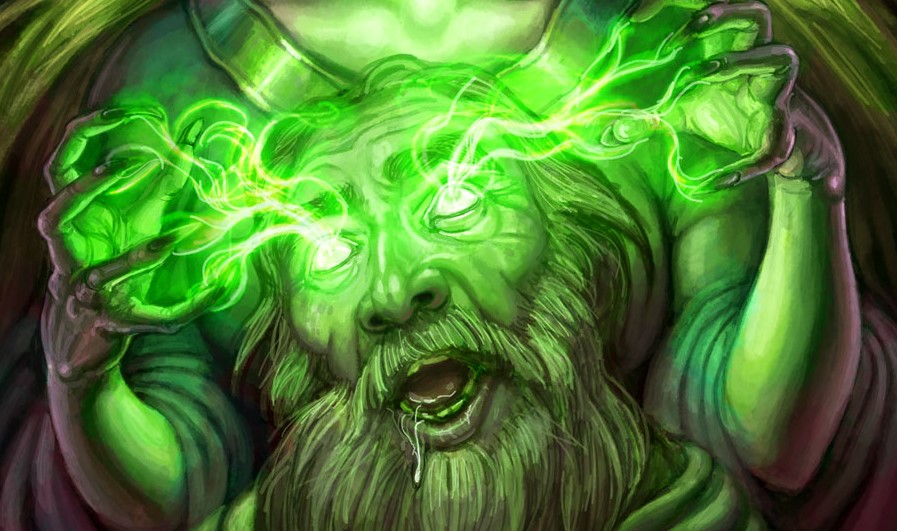
I don't know, he looks pretty happy to me. Sure, he looks about as smart as a pile of potatoes, but they say ignorance is bliss.
One of the hardest parts about fighting an evil villain is that they’re smart, sometimes even smarter than you. This spell takes care of that completely. Just be careful, because it’s just as likely to be cast on you, and it is a doozy.
Not only does it deal guaranteed damage, but it lowers the target’s stats so much, that they can’t even communicate in any intelligible way. It basically makes the target a caveman.
Why Feeblemind Is Great:
- It can be ended early with certain spells, but otherwise you can only make a save every 30 days.
- Being affected by Feeblemind can be fun too sometimes. It’s nice to take a break from playing the intellectual wizard from time to time.
- There is no better spell for dealing with a spellcaster.
Feeblemind details:
- Available to Druids, Bards, Warlocks, and Wizards.
- An 8th level spell.
- You blast the mind of a creature that you can see within 150 feet. They take 4d6 psychic damage and must make an Intelligence saving throw. On a failed save, the creature’s Intelligence and Charisma scores become 1. They can’t cast spells, activate magic items, understand language, or communicate in any intelligible way. They can identify their friends, follow them, and even protect them.
1: Wish

Use with caution. As anyone who has ever seen I Dream of Genie or Aladdin knows, making a wish can go wrong in so many ways.
Wish is the ultimate spell because it has the power to be almost any other spell. But more than that, wish can be anything. The wish spell is an opportunity to try and match wits with the Dungeon Master. Sure, you can just use one of the effects outlined in the book, but more importantly, you can very carefully word a wish you want granted that could change the world, events, characters, relationships, etcetera.
Just be careful what you wish for.
Why Wish Is Great:
- Some of the best conversations around the table can stem from, “What should I wish for in this situation?”
- Having access to any spell of 8th level or lower is a tremendous power even by itself.
- Wish is about as dangerous as the Deck of Many Things. It can make or break a campaign. And that’s the fun of it.
Wish details:
- Available to Sorcerers and Wizards.
- A 9th level spell.
- Wish can basically do anything if you have an open GM. The important part to know is the following: The stress of casting this spell to do anything besides duplicating another spell weakens you. Until you finish a long rest, casting spells deals 1d10 damage to you per level of the spell, and it can’t be reduced or prevented in any way. Your strength drops to 3 for 2d4 days. And if you suffer this stress, there is a 33 percent chance that you will be unable to cast Wish ever again.
You may also be interested in:
Image Gallery
- Log in or register to post comments
 Home
Home PC Game Trailers
PC Game Trailers News
News Menu
Menu

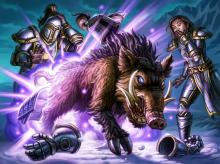

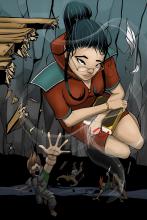
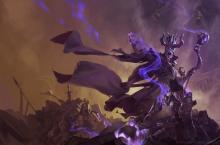


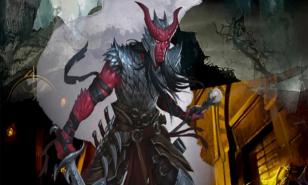
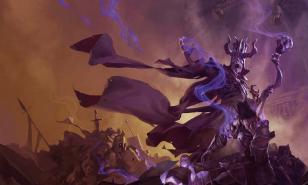




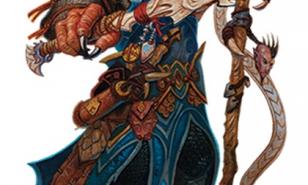
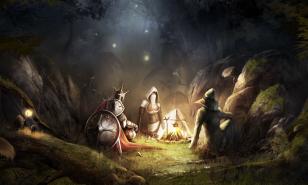


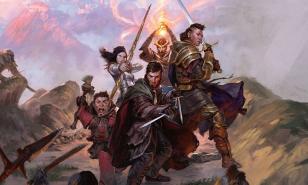

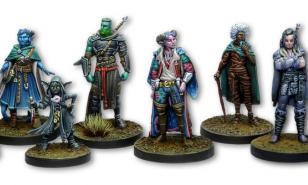



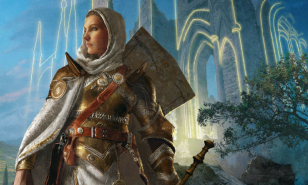
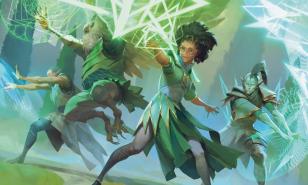

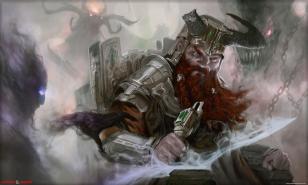

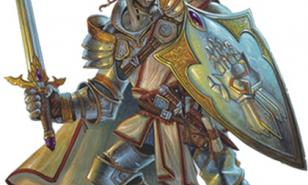
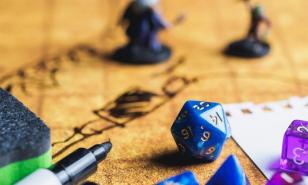
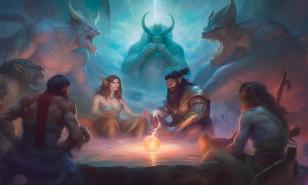

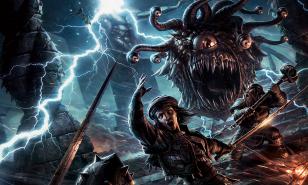

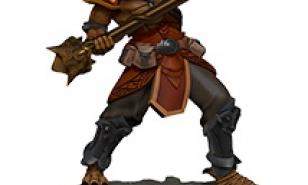

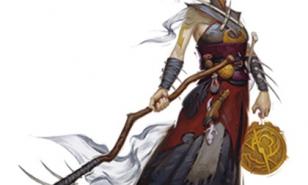

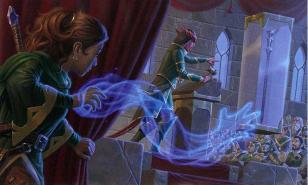
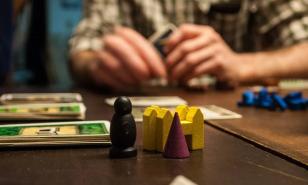

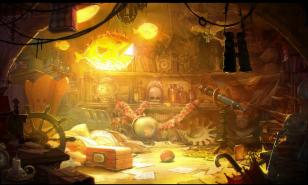

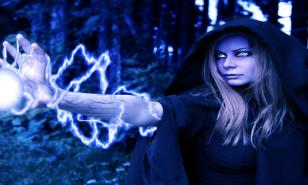
![[Top 15] D&D Best Armors, Best armors in D&D, dnd best armor best armor dnd, what armor for my character dnd, d&d best armor, d&d magic armor, best magic armor dnd, top armor dnd, top armor d&d, legendary armor dnd, dnd best legendary armor, legendary magic items, legendary magic armor, dungeons and dragons legendary armor, dungeons and dragons magic armor](https://www.gamersdecide.com/sites/default/files/styles/308x185-scale-crop--more-top-stories/public/top_legendary_armor.jpg)
![[Top 20] D&D Best Barbarian Items, Armor and Weapons D&D Best Barbarian Items, Armor and Weapons](https://www.gamersdecide.com/sites/default/files/styles/308x185-scale-crop--more-top-stories/public/4._top-20-dnd-best-barbarian-items-weapons-and-armor-headline_1.jpg)




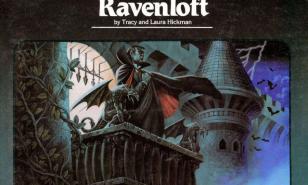

![[Top 3] D&D Best Druid Subclasses To Play](https://www.gamersdecide.com/sites/default/files/styles/308x185-scale-crop--more-top-stories/public/top_3_dd_best_druid_subclasses_to_play_1.jpg)
![[Top 10] D&D Best Wizard Weapons and Items Best wizard magic items, best magic items for wizards, best wizard items, best items for wizards, wizard items, wizard magic items, items for wizard, items for wizards, magic items for wizard, magic items for wizards, caster magic items, magic items for casters, caster items, must have items for wizards, must have magic items for wizards, magic items to pick for wizards, items to pick for wizards, magic items to pick for wizard, items to pick for wizard](https://www.gamersdecide.com/sites/default/files/styles/308x185-scale-crop--more-top-stories/public/battle_of_will.jpg)


